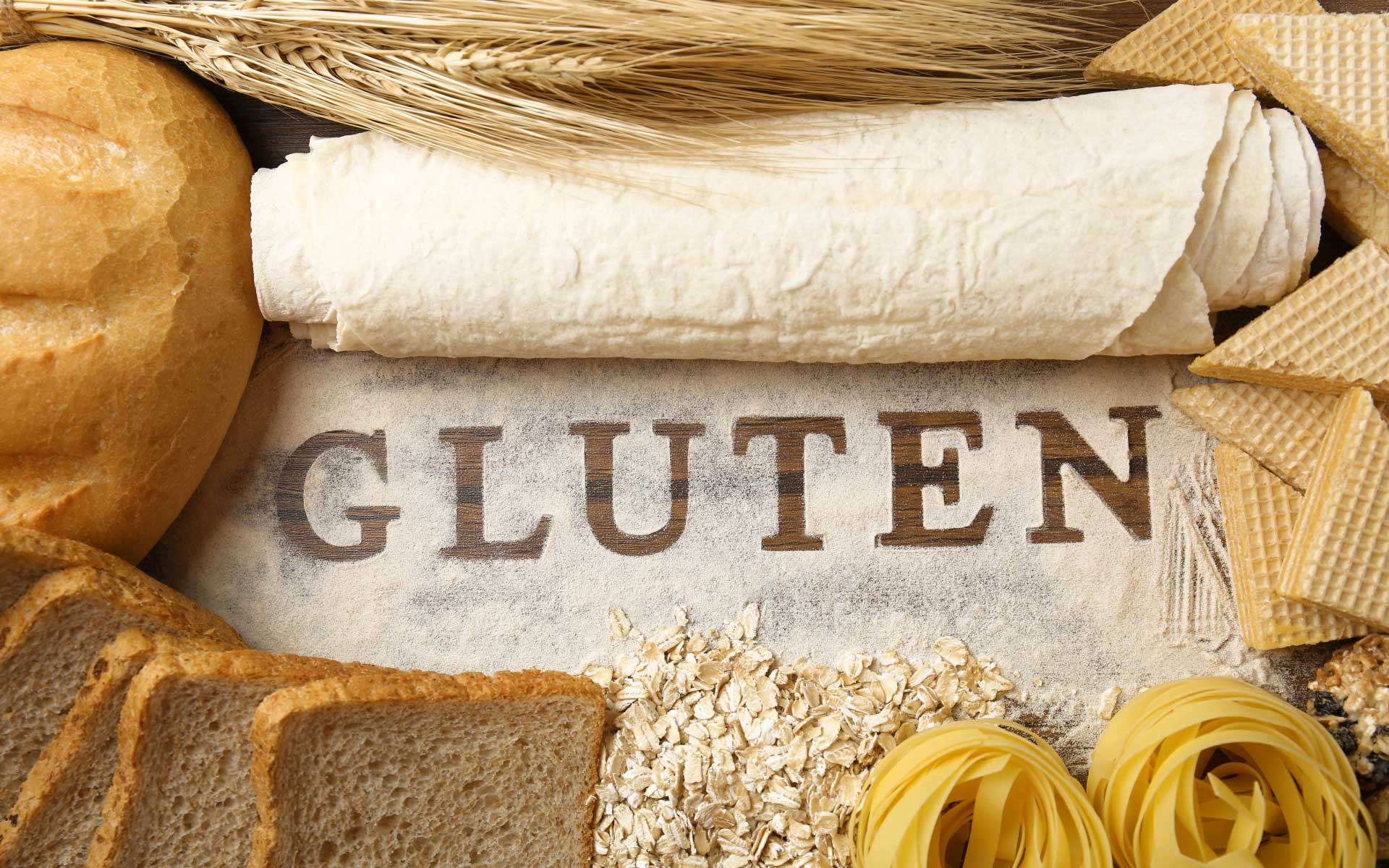Another tricky food group to avoid during the cleanse is GLUTEN/WHEAT. They are related to inflammation in the body which we are aiming to reduce.
WHY IS GLUTEN EXCLUDED?
Gluten can cause elevated liver enzymes, which leak chemicals into the bloodstream, often indicating inflammation or injuries to liver cells.
More than 250 scientific studies have linked gluten sensitivity to liver and gallbladder disease. Gluten intolerance symptoms include:
Gastrointestinal issues:
-
- Bloating
- Abdominal pain
- Diarrhea
- Constipation
- Nausea
- Excessive gas
Fatigue
Headaches
Joint pain
Skin problems:
-
- Rashes
- Eczema
Brain fog
Difficulty concentrating
Mood swings
So what is gluten?
Gluten is a protein found in many grains including wheat, rye, barley that no human can completely digest. Our body produces digestive enzymes that act like scissors which are meant to cut the proteins into smaller parts called amino acids, like cutting a string of pearls.
Gluten’s molecular composition makes this process difficult and the scissors (enzymes) can´t make nice smaller pieces, so indigestible clumps are broken off instead. These clumps may cause damage to the gut wall and impact the ability to absorb nutrients properly. This is why it is related to a number of other diseases that can arise, especially autoimmune conditions.
Many of us have unnecessary bloating, often attributed to gluten. Gluten sensitivity has become more common partly because our bread contains much more gluten than the bread of 100 years ago. Many farmers breed wheat to INCREASE the gluten content and some even use antibiotics on the farms.
Many clients I work with feel better quite quickly when avoiding gluten. They have more energy, reduced headaches, no brain fog, improved bowel movement, less bloating. This indicates they are sensitive to gluten. Others are more reactive to wheat. This means they can eat rye, barley and spelt but not other items with wheat in.
I suggest leaving all out gluten for your programme and then reintroducing the oats, barley or rye one at a time with 48 hours between each type and see if you notice any changes. If you get a reaction to these you are very gluten sensitive and there is no need to reintroduce the spelt or wheat.
If you like to eat bread, you will need to look for an alternative that is gluten free and also not full of additives and preservatives or added sugars. Maybe try this recipe, without the honey.
https://homesteadandchill.com/gluten-free-sourdough…/
Read this recent paper if you´ve an interest in gluten-related disorders:
https://bmcgastroenterol.biomedcentral.com/…/s12876-020…
For those who enjoy statistics follow this link for those following a gluten free diet in Europe. May be no surprise that France is bottom of this list!
https://www.statista.com/…/share-of-consumers-eating…
When the programme is completed aim to have a non factory made sourdough/rye bread if you have no digestive issues.
Genetic testing is the gold standard for evaluating gluten sensitivity. You need to check both the HLA-DQ Alpha 1 & Beta 1 genes. Unfortunately, many doctors still use antiquated and inaccurate gluten sensitivity tests. Examples of these gluten intolerance tests include:
- Anti-gliadin antibodies – this is a blood test that measures for antibodies to one of the types of gluten found in wheat. It is not very comprehensive and often times gives false negative results.
- Anti-tissue transglutaminase – this test is only specific for celiac disease and also has a tendency to come back falsely negative.
- Intestinal Biopsy – this test is also only specific for celiac disease and comes back with a lot of false negatives
